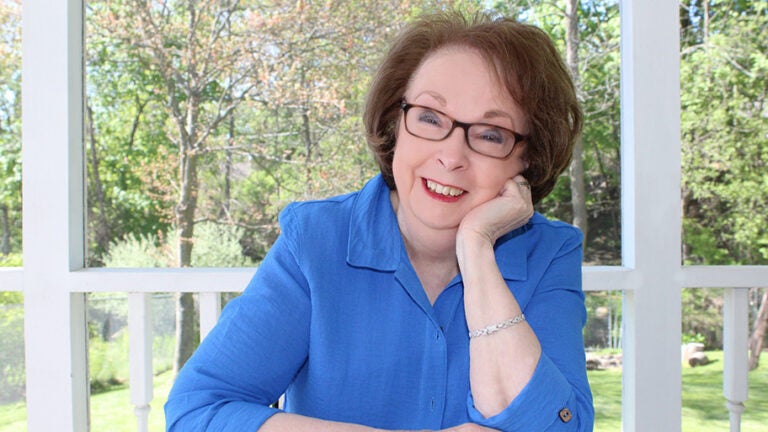
Chocolate cake, rabbits and community: Reflections on 20 years running a county fair
Frances Tepper had only been living in Santa Maria, California, for a few weeks, but she had already heard all about the region’s upcoming big event: the county fair.
“There were four things that everybody in town supported: summer theater, the rodeo, the Santa Claus parade and the Santa Barbara County Fair,” recalls Tepper, who graduated in 1966 with a bachelor’s degree in sociology from the USC Dornsife College of Letters, Arts and Sciences.
Though Tepper had never been to a fair before, she thought it might be a pleasant way to pass the day with her husband and two young daughters. And somewhere between the raffles, the funnel cake and the cow-milking demonstrations, she realized the fair offered more than entertainment: It provided a sense of community. So, years later, after raising her three children and moving to upstate New York, Tepper became executive director of the Monroe County Fair so she could bring the spirit of the event to others.
From one fair to another via bunnies
Growing up, Tepper had little exposure to farmland and agriculture. She was born in Rochester, New York, where she lived until she was a teenager. Tepper’s mother had died when Tepper was 9, and her father died when she was 16, leaving Tepper an orphan. After staying with her aunt and uncle for a few months and graduating high school, Tepper boarded a train to California to live with her sisters in Redondo Beach. She soon enrolled at USC, but finding tuition money proved challenging.
“I did anything I possibly could to earn money to stay in college. I was very fortunate that USC gave me a full-tuition scholarship after my first semester,” she says. “Then I lived at the Soroptimist House, which enabled me to live on campus at $50 a month, and that included room and board. Without that, I don’t know what I would’ve done.”
Tepper came to USC wanting to major in journalism, but after the head of the journalism department told her there “was no future for women” in the profession, she switched to sociology. She married shortly after graduation, and she and her husband returned to Rochester, where she soon got a job as a child protective social worker.
The couple moved back to the West Coast when her husband was again transferred, this time to Santa Maria, and Tepper dedicated herself to raising their two small children.
During that first visit to the Santa Barbara County Fair, one of Tepper’s daughters fell in love with the bunnies on display, and afterward she begged her mother to allow her a few pet rabbits. Rabbits being what they are, the several rabbits quickly turned into a brood of 200. But raising the animals had sparked Tepper’s interest in agriculture.
One final transfer several years later and the family was back in Rochester, this time for good. Having raised her children, Tepper started considering her career options, and Inspired by her newfound agricultural interest, she took a job with the local 4-H chapter. From there, she soon became a board member of the county fair and worked her way through the ranks until finally, in 1992, after the board president became ill, she stepped up to try her hand at running one.
Running the show
Tepper remarks that when she took over the Monroe County Fair, its reputation was not stellar.
“When I first came to the fair, we were dubbed by the president of the New York State Association as an ‘embarrassment to the industry,’ and the town supervisor called us ‘a sleazy carnival,’” she says. After putting a stop to the fights in the beer tent and greatly expanding the livestock exhibits, Tepper set out to add to the fair’s offerings.
“We brought in a lot of innovative things that the fairs didn’t usually see, like components of a NASA space station. That was something that had never been at a fair before,” she says. She adds that she also worked hard to book local popular bands, which often drew huge crowds to the event.
Tepper notes that her studies at USC Dornsife proved to be helpful in her career. “I dealt with a variety of people on a daily basis — entertainers, construction people, patrons … people from all walks of life. And my degree really helped me to be able to deal with them successfully.”
But working with some people was challenging, especially early on in her career, when it was rare for a woman to manage a fair. When she first started the job, there was only one other female fair director in the state.
“There were a lot of people, not so much in the fair industry itself but in the community, who weren’t very happy to have a woman in the position that I was in,” she says. “At the time, it was so normal that I didn’t think about it, but in retrospect it was awful, and it would have been an easier job if people had just cooperated with me and forgotten about the fact that I was a woman,” she says.
Nonetheless, Tepper enjoyed her behind-the-scenes work. And she even partook in some fair activities herself, like the baking competition, where her chocolate cake won a blue ribbon. (They even used blind judging, so judges didn’t know she baked it.)
Tepper retired from her position after 20 years, but she recently published a book, Fair Lady (Cosmographia, 2021), about her experience running a county fair. And there is one message, born of experience, she hopes to convey.
“Fairs are a type of entertainment event where you get people to come because of the fun, but you also teach them things that they might not ordinarily learn in their everyday lives,” she says. “But these things like agriculture are really important, and people are often really not aware of how essential they are.”